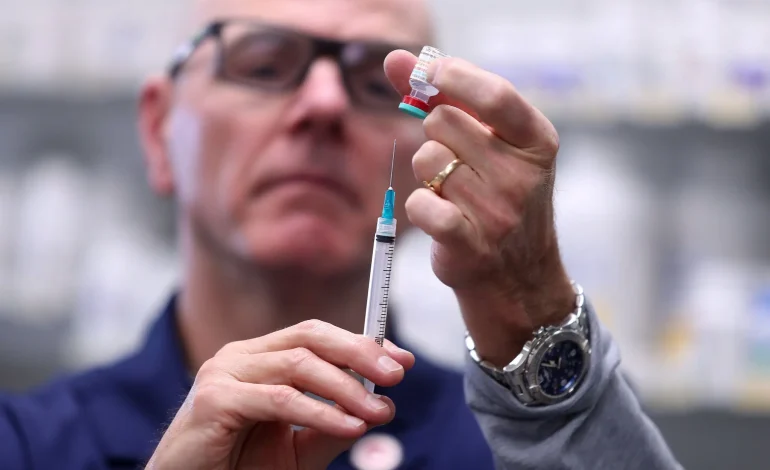A growing body of research suggests that preventing certain viral infections can help protect cognitive function, the New York Times reports.
A recent study has found that getting vaccinated against shingles may reduce the risk of developing dementia, offering some of the strongest evidence yet that viral infections can have long-term effects on brain health.
The study, published in Nature, analyzed data from a shingles vaccine rollout in Wales. Researchers tracked the health records of about 280,000 individuals between the ages of 71 and 88 over a seven-year period. They found that those who received the shingles vaccine were 20% less likely to develop dementia compared to those who were not vaccinated.
“If you’re reducing the risk of dementia by 20%, that’s quite important in a public health context, given that we don’t have many other options to slow down the onset of dementia,” said Dr. Paul Harrison, a psychiatry professor at Oxford.
Though not involved in this study, Dr. Harrison has conducted related research suggesting a link between shingles vaccination and dementia risk reduction.
Shingles, also known as herpes zoster, is caused by the varicella-zoster virus, which remains dormant in the body after a person recovers from chickenpox. As individuals age and their immune systems weaken, the virus can reactivate, causing painful blisters, nerve pain, and, in some cases, chronic complications. According to the Centers for Disease Control and Prevention (CDC), about one in three Americans will develop shingles in their lifetime.
Previous studies have suggested a potential link between shingles vaccination and lower dementia risk. However, most prior research could not rule out other contributing factors, such as lifestyle or socioeconomic differences between vaccinated and unvaccinated individuals. The new study addresses this limitation by using a “natural experiment” based on a specific vaccine eligibility cutoff in Wales, allowing researchers to compare similar groups.
Scientists have proposed multiple theories to explain why shingles vaccination may lower dementia risk. One possibility is that by preventing shingles, the vaccine reduces neuroinflammation caused by viral reactivation. Chronic inflammation has been linked to cognitive decline and dementia.
Another theory is that shingles vaccines boost the immune system in a way that provides broader neuroprotective benefits. The study found that women, who generally have stronger immune responses to vaccines, experienced a greater protective effect against dementia. The vaccine also appeared to offer stronger protection for individuals with autoimmune conditions and allergies.
The study examined the effects of Zostavax, an older shingles vaccine that has since been replaced in the US by Shingrix, a more effective vaccine with longer-lasting protection. Other research suggests that Shingrix may offer even greater protection against dementia.










The latest news in your social feeds
Subscribe to our social media platforms to stay tuned